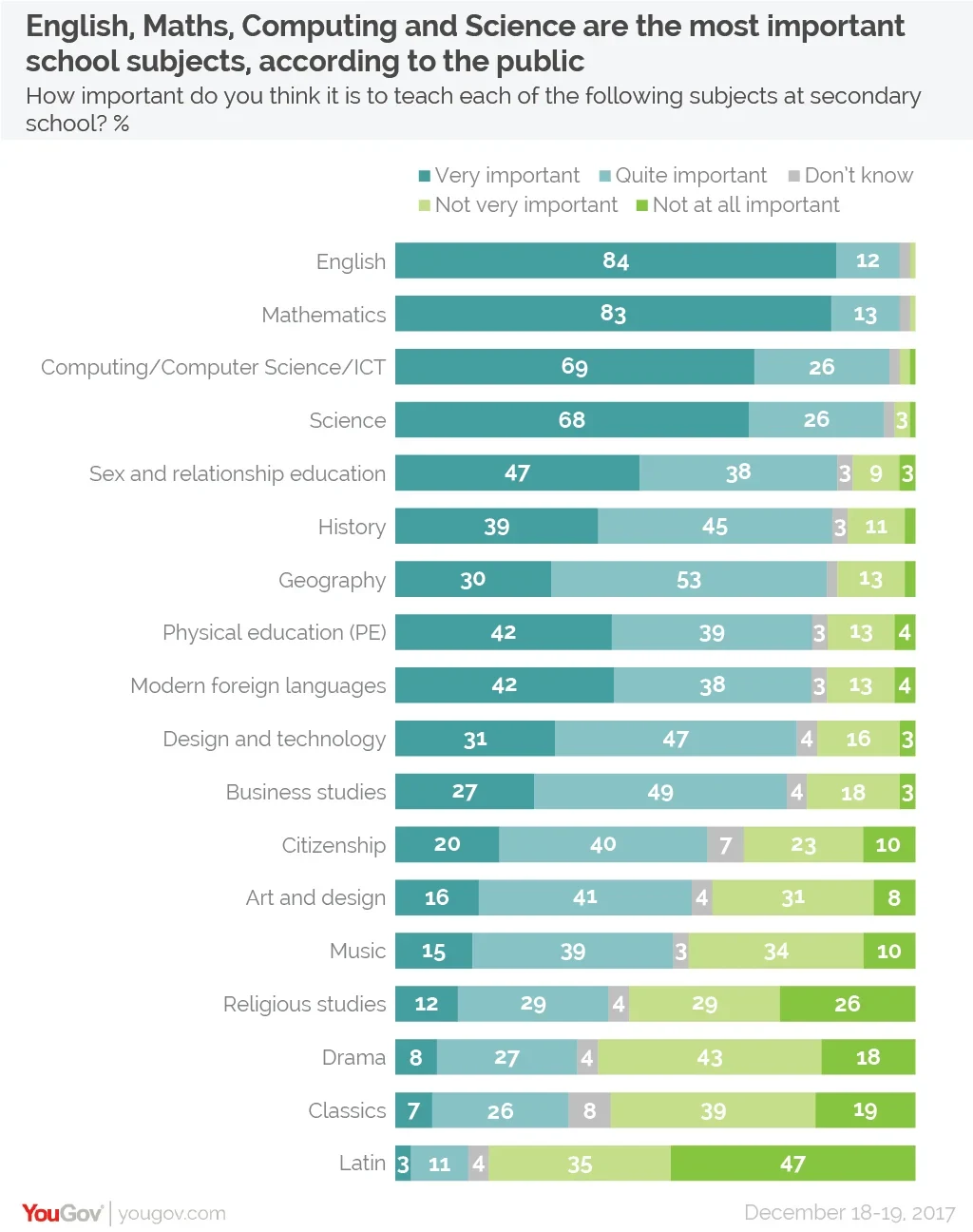Latin is the subject Britons think is least important
New YouGov research has asked the public how important they feel it is for secondary schools to teach each of 18 different subjects.
Topping the table are English and Maths, which 96% of Brits consider to be important subjects (including 84% and 83% respectively who think they are “very” important).
Coming close behind are computing and science which 95% and 94% respectively believe are important, although Britons are less likely to list them as “very” important – 69% and 68% respectively.
The high numbers of Britons proclaiming these four subjects to be “very” important sets them apart from the rest of the list. No other subjects are seen as “very” important by the majority of Britons – the next closest is sex and relationship education at 47%, a difference of more than twenty percentage points.

Four subjects also stand apart at the bottom of the table – the only ones which are seen as important by fewer than half of people.
Despite sporadic calls for it to be added to the curriculum – including from Boris Johnson while he was Mayor of London – coming in dead last is Latin, which only 14% of Brits see as important. Additionally, classics (33%), drama (35%) and religious studies (41%) fail to garner the support of most Britons.
Women and older Britons are more likely to consider subjects important
The results show that there are several subjects that women are much more likely than men to consider important. The subject the genders are most divided over is religious studies, which almost half of women (48%) consider important compared to only a third of men (34%). Other noticeable differences include art and design (62% of women, compared to 51% of men), drama (40% vs 30%) and classics (38% vs 29%).
There was no subject that men were noticeably more likely to say was important than women.
Young people were similarly less likely to see the importance of any given subject when compared to their elder peers. Britons aged 18-24 are especially less likely than those aged 65+ to believe that design and technology (60% vs 83%), citizenship (49% vs 66%), classics (27% vs 44%) and modern languages (74% vs 89%) are important topics.
There was one subject, however, that the youngest Britons were more noticeably more likely to think was important than the oldest: sex and relationship education. While 85% of 18-24 year olds believe the subject is important (including 70% who think it is “very” important), this falls to 74% among 65+ year olds (of whom only 27% consider it “very” important).
Conservatives favour classics and business studies, Labour prefer the arts
With the inclusion or exclusion of certain subjects on the curriculum often being a source of political wrangling, the results reveal divisions among voters over certain topics. Those who voted Conservative in 2017 are more likely than their Labour-voting counterparts to believe in the importance of business studies (81% vs 73%) and classics (39% vs 31%).
Labour voters, by contrast, have a higher tendency to emphasise the importance of the arts, being much more likely than Tories to say that art and design (64% vs 52%), music (62% vs 51%) and drama (42% vs 31%) are important subjects. They are also much more likely to say that sex and relationship education is important (93% vs 80%) as well as religious studies (47% vs 40%).
Photo: Getty













